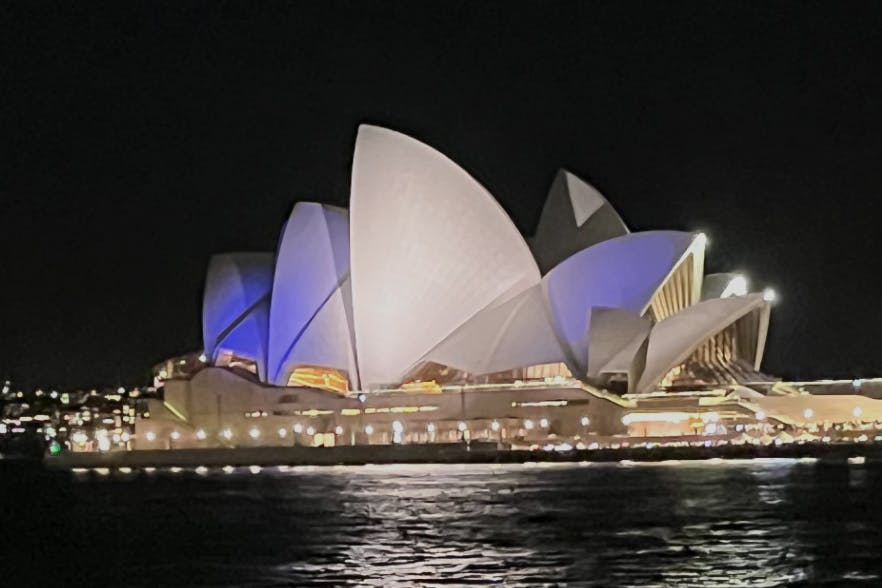Published: 30 May 2018
Last updated: 4 March 2024
With founder, lead singer and songwriter Ravid Kahalani up front, the band’s upcoming Australian tour - with performances at the Melbourne Jazz Festival, Sydney and Cairns - will include musicians from Israel, New York and Uruguay.
WATCH VIDEO
Their instruments include percussion, keyboards, trumpet, bass and oud, a type of lute. Kahalani, who delivers soaring vocals in Yemeni Arabic, Hebrew and French, also plays the gimbri, a three-stringed bass.
His unique voice and sound can be traced to his childhood. Born in Israel and raised in a religious Yemenite culture, he took classes with a rabbi to practice prayers that were sung using specific melodies. Earlier in his career, he considered becoming an opera singer but then discovered Arabic music and started to sing in Arabic.
Like most "first generation" Israelis, he rebelled against his culture and language, exploring instead the world of Afro-American music such as blues and jazz, James Brown, Michael Jackson and Prince. After 15 years of experimenting in different styles, these influences blended into Yemen Blues. Kahalani is still constantly researching new sounds, instruments and influences.
Though he doesn't speak Arabic, Kahalani prefers to sing in that language, telling The Jewish Independent that he sees his music as a bridge. He says he loves seeing Israeli Jews singing along with the band in Arabic and he loves the fact that Muslim Arabs come to hear him, and he feels proud to sing in their language. In a song called Min Kalbi (From My Heart), Kahalani sings:
"It doesn't matter where you come from, your language is my language/It doesn't matter to which God you are praying, because the melody always comes from the heart"
[gallery columns="1" size="large" ids="20192"]
Kahalani says he been invited to perform in Egypt, Dubai, Jordan, Tunis and Yemen but has not been able to do so because of restrictions on Israelis. “I wish and have no doubt that a performance in one of these countries will take place in the future."
Kahalani says one of his songs, Jat Mahibathi, (My Love is Coming ) is very popular in the West Bank city of Ramallah and that feedback from fans comes from across the Arab world, from Syria to Turkey, Morocco and Yemen.
Since its formation in 2010, Yemen Blues has performed at many music festivals across the world, from New York's Summer State to Denmark's Roskilde and WOMEX.
After Israeli singer Netta Barzilai won the Eurovision Song Contest last month, the Israeli poet Adi Keissar tweeted: “congratulations to Neta Brazilai, who proved it’s possible to win a Eurovision contest even if you are not a Yemenite (a reference to the prominent Yemenite contribution to Israel’s music scene, including previous Eurovision winners Gali Atari, Yizhar Cohen, Dana International, and participants such as Ofra Haza and Achinoam Nini).
“We support her, but at the same time, the Yemenite congregation already gets ready for the next Eurovision to make sure something as such won’t happen again,” she jokes.
Perhaps the Israeli Eurovision committee could ask Yemen Blues to join the party. With this small gesture, it could make a big statement for peace and goodwill.
Main photo: Ravid Kahalani playing the gimbri (Jane Higgins)
PERFORMANCE DETAILS
Melbourne: June 6 and 7
Sydney: June 8
Cairns: June 9




